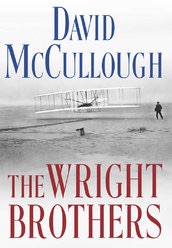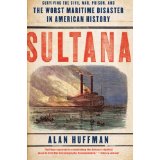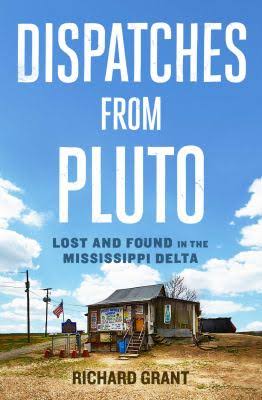What's Everyone Reading
- Thread starter Steve Williams
- Start date
You are using an out of date browser. It may not display this or other websites correctly.
You should upgrade or use an alternative browser.
You should upgrade or use an alternative browser.

Born in 1951 in an affluent Tokyo suburb, Hajime—beginning in Japanese—has arrived at middle age wanting for almost nothing. The postwar years have brought him a fine marriage, two daughters, and an enviable career as the proprietor of two jazz clubs. Yet a nagging sense of inauthenticity about his success threatens Hajime’s happiness. And a boyhood memory of a wise, lonely girl named Shimamoto clouds his heart.
In South of the Border, West of the Sun, the simple arc of a man’s life—with its attendant rhythms of success and disappointment—becomes the exquisite literary terrain of Haruki Murakami’s most haunting work. When Shimamoto shows up one rainy night, now a breathtaking beauty with a secret from which she is unable to escape, the fault lines of doubt in Hajime’s quotidian existence begin to give way. And the details of stolen moments past and present—a Nat King Cole melody, a face pressed against a window, a handful of ashes drifting downriver to the sea—threaten to undo him completely. Rich, mysterious, quietly dazzling, South of the Border, West of the Sun is Haruki Murakami’s wisest and most compelling work.
Just finished Erik Larson's newest : "Dead Wake: The Last Crossing of The Lusitania"
View attachment 20063
What did you think, I have had it in my hand a couple times and haven't pulled the trigger.
After my listening session today of I Robot I will be getting into Asimov.
What did you think, I have had it in my hand a couple times and haven't pulled the trigger.
After my listening session today of I Robot I will be getting into Asimov.
I liked it. Not quite as good as his previous but worthwhile
I liked it. Not quite as good as his previous but worthwhile
Thanks for the quick response.
For those that have read Asimov, which book do I get to get all the Robot books in one book, my head hurts from looking into this.
Starting that one myself. Arrived a few days ago.
Just finished Erik Larson's newest : "Dead Wake: The Last Crossing of The Lusitania"
View attachment 20063
+1. Have you read Larson's Devil in the White City?
+1. Have you read Larson's Devil in the White City?
Yup. That is a great book.
"Empire of Self: A Life of Gore Vidal" by Jay Parini
My favorite biography of the year....

My favorite biography of the year....

Easily the best, most entertaining book about Gore Vidal is his 1995 memoir “Palimpsest.” But with the possible exception of “In Bed With Gore Vidal,” Tim Teeman’s 2013 tell-all, “Palimpsest” is also the least reliable of the Vidal books. Vidal was a tireless self-mythologizer, and as his title suggests, that book is a layering of rememberings, re-rememberings and mis-rememberings. In his new, much sounder biography, “Empire of Self,” Jay Parini suggests that even the account of Vidal’s idyllic romance with his high school friend Jimmie Trimble, one of the touchstones of “Palimpsest” — the story of a love so perfect and unearthly that it could never be duplicated — was most likely a fabrication.
Parini was close enough to Vidal to know when not to take him at his word. An English professor at Middlebury College, he met Vidal while on sabbatical in Italy in the mid-80s, and somewhat improbably — Parini is modest, earnest, scholarly and straight, none of which could be said about Vidal — the two became friends. “It would be fair to say, in a crude way, that I was looking for a father, and he seemed in search of a son,” Parini writes, not adding that, as so often happens, the son wound up taking care of the father to a certain extent and putting up with more than he had bargained for.
Vidal couldn’t wait to read a biography of himself, and in the early ’90s, he proposed that Parini write one. Parini wisely declined, realizing that he couldn’t be friend and biographer both while Vidal was alive, and, not so wisely, arranged for Fred Kaplan to take over the job. Kaplan’s file cabinet of a book, which came out in 1999, pleased nobody, least of all its subject, who pretended that it had all been a mistake and that the biographer he really meant to authorize was Justin Kaplan.
Parini readily admits that for his own book he has leaned a little on Kaplan’s research, particularly for the years before he met Vidal, and factually his account differs very little. We get once again Vidal’s lonely childhood with a monstrous, alcoholic mother (he once said he had grown up in the House of Atreus); his formative friendship with his beloved maternal grandfather, Thomas Pryor Gore, the blind senator from Oklahoma; his indifferent education and service on an Army transport ship during the war; his return to the United States and then, when he’s still just in his 20s, that sudden flowering in which his talents seem so abundant that they shoot off in every direction: novels, plays, movie and television scripts. There is also, of course, his love-hate relationship with the Kennedys; the two runs for office; the feuds with Norman Mailer, Truman Capote and William F. Buckley; the grand self-exile to Italy; the nutty embrace of Timothy McVeigh; the increasing crankiness with America and American foreign policy. If at times “Empire of Self” feels as if it’s checking off a list, it’s because Vidal’s life was so large and various.
What distinguishes Parini’s account is its readability — though it’s not without a certain amount of professorial throat-clearing and too many clichés Vidal would have winced at — and its sympathy. His Vidal is less a monster of egotism than a damaged, needy figure who can measure his self-worth only in terms of how others see him, and who at the same time holds others off by demanding not just love and admiration but something like obeisance. Even Vidal’s boastful embrace of pansexuality was something of a pose, Parini says: He was gay, though he hated the word, and wished he were otherwise.
Parini doesn’t flinch at the sad spectacle of Vidal’s last years, a long, slow self-*ruination in which, after the death of his companion, Howard Austen, in 2003, he more or less drank himself into dementia, but “Empire of Self” doesn’t linger on it, either. Readers hoping for more lurid details — Vidal, unable to open a bottle of Scotch, smashing it against a fireplace and guzzling from the broken neck, or lunging so abruptly for a bottle that his suspenders snap and his pants fall down — will have to turn to Michael Mewshaw’s “Sympathy for the Devil: Four Decades of Friendship With Gore Vidal,” which came out earlier this year. Mewshaw’s résumé curiously parallels Parini’s (he is also straight and a family man; also a literary journeyman), but he is a more vivid, more gossipy writer, and if his book dwells on Vidal at his worst, it also conveys more of his voice and his charm, his hugeness of personality, his gift for one-liners — why, in short, Vidal’s company was something to be valued.
“Every time a friend succeeds, something inside me dies,” Vidal famously said, and the phrase has been pressed into service as the title for the British edition of Parini’s book. But on the evidence of both Parini and Mewshaw, Vidal could be a generous, thoughtful and attentive friend to those who passed his muster, and the list of those who did was considerable, somehow including even Princess Margaret. His closest relationship was with Austen, who in Parini’s book emerges as a thoroughly winning character. Vidal met him, a redheaded would-be pop singer who suffered from stage fright, at the old Everard Baths in New York on Labor Day in 1950, and though they soon stopped sleeping together, they were afterward seldom apart. Austen became to Vidal what Chester Kallman was to W.H. Auden, and David Jackson was to James Merrill: factotum, major-domo, helpmate. Part of his job, especially toward the end, was saving Vidal from himself. He watered his drinks, hauled him off to bed and called him down from his perch when he got too pompous.
Both Mewshaw and Parini can’t get over how productive Vidal was, considering how many mornings he woke up with a mind-numbing hangover. He wrote more than 50 books, many of them very good, a few pretty bad, but — though he would hate to think this — none of them truly great or major. Parini devotes perhaps too much space to discussing Vidal’s individual works and trying to assess his literary legacy. (Note to Middlebury students: Professor Parini is a very fair grader but not always an easy one, and cuts his friends no slack. He also nods off sometimes, as when he tries to compare “Myra Breckinridge” to Updike’s “Couples” and Roth’s “Portnoy’s Complaint.”)
Parini’s guess is that it’s the historical novels — especially “Julian,” “Burr” and “Lincoln” — that will last, if any do, but he also suggests that it was both Vidal’s gift and his limitation that no single literary form could contain him. The essay came closest, and it’s there that Vidal most gets to show off his wit, stylishness and erudition — to be Vidal. But as Vidal was painfully aware, unless you’re Montaigne, essays won’t make your reputation. It’s possible, in fact, that Vidal will live on most vividly not on the page but on YouTube. No other American writer has been so at home on television, a medium to which he was ideally suited and where, funny, urbane, glamorous and magisterial, he could capture the attention of *millions and become the imperial self he imagined.
carolkoh
[Industry Expert] Member Sponsor
I'm re-reading Wuthering Heights - and plan to re-read Jane Eyre after. A teacher friend suggested I read Jean Rhys' Wide Sargasso Sea (written from the mad wife in the attic's perspective) so that's next on the list after Jane Eyre
Concussion. It's a great story. I can't watch a football game the same way again. My children will never play full contact football. They know that.
I have two boys. I know there is a big shift away from football at their age, even in Texas. My prediction is that professional football will be like professional boxing in 20 years; a side show featuring desperately poor youth.
I have two boys. I know there is a big shift away from football at their age, even in Texas. My prediction is that professional football will be like professional boxing in 20 years; a side show featuring desperately poor youth.
Last edited:
Started last week as they were Xmas gifts
Sam Philips: The man who invented R&R
Dead Wake Erik Larson
Sam Philips: The man who invented R&R
Dead Wake Erik Larson
Rereading
The Man-Eaters of Tsavo by
Lt. Col. JH Patterson
The movie 'Ghost and the Darkness' is based on this book and recollections.
Val Kilmer played the char in the film. The bridge engineer.
The Man-Eaters of Tsavo by
Lt. Col. JH Patterson
The movie 'Ghost and the Darkness' is based on this book and recollections.
Val Kilmer played the char in the film. The bridge engineer.
Last edited:
Started last week as they were Xmas gifts
Sam Philips: The man who invented R&R
Dead Wake Erik Larson
Just finished 'Devil in the White City' by Larsen, good book and particularly interesting for someone from Chicago such as myself.
Just finished three books while on vacation.
Michael Connelly - The Crossing
The Girl in The Spider's Web - Dvid Lagercrantz
Christopher Reich - Invasion of Privacy
Michael Connelly - The Crossing
The Girl in The Spider's Web - Dvid Lagercrantz
Christopher Reich - Invasion of Privacy
Similar threads
- Replies
- 5
- Views
- 240
- Replies
- 2
- Views
- 730
- Replies
- 0
- Views
- 786
- Replies
- 52
- Views
- 4K
- Replies
- 15
- Views
- 3K
| Steve Williams Site Founder | Site Owner | Administrator | Ron Resnick Site Owner | Administrator | Julian (The Fixer) Website Build | Marketing Managersing |




